This has been one of my old posts that I’ve wanted to bring back for a while because it was fun to write and people who have a similarly nerdy knack for this stuff as I do seemed to enjoy it. But luckily, I’m not only reposting it but had
hop on and add her favorites as well.I’m so endlessly particular about words and meanings and subtext and, as Greta Gerwig put it, the words people use to not say what they mean. And not only that but how the words we hear in film & TV relate to our lives outside of the screen. I’ve always collected and recited lines from the television in my head, ever since I could speak.
Amanda and I got talking in the first place because of movies, (me frantically convincing her to watch more Wong Kar-Wai movies, her doing the same to me with Almodóvar), so I’m stoked to have her be a part of this!
Warning: contains potential spoilers for all films & shows mentioned.
Zora
“You may be a sinner, but I ain’t yet had the opportunity.”
-Ennis del Mar, Brokeback Mountain
Everyone who knows me a little bit knows that I have a tad of an obsession with Brokeback Mountain (the movie, the short story, AND the play). What can I say, I love a tragedy. That and, there is something oddly comforting to me in the idea that you can spend an entire life not really living. That might sound absurd, but it reiterates the idea of agency. You are not predestined for anything, nothing is promised, neither good nor bad. There is no fate, only the choices you make or don’t make. Of course in this story, outer circumstances and the environment of the characters play a big role. So much is not within their control. Ennis’ fear is not paranoid, it’s justified and realistic. Still: Whether you are willing to risk your life for what you want is also a decision. Survival vs. Happiness and Freedom. Who can judge anyone for making either choice?1
To contradict what I just said, I think Ennis del Mar is a character who is a bit doomed by the narrative. This line is a piece of crude foreshadowing, telling us that he views what is about to transpire, what he, on some level, already knows exists inside of him, as wrong. While Jack can comfortably joke about being a sinner, because these religious and societal concepts of morality already don’t mean much to him anymore, it’s not the same for Ennis. And it never will be, which is ultimately what keeps them apart.
Sinner if you do, sinner if you don’t (because of how his inaction is breaking Jack’s heart over and over for twenty years).
But going a little bit away from the context and looking at the line itself: They are so young here (19, I believe). It makes so much sense.
I’ve carried a deep-seated sense of guilt with me since I was a teenager, without being in any way, shape, or form able to articulate what acts I have committed to justify said guilt. It’s just there. It’s not what I’ve done, it’s just what I am. There is something very religious in that, something very akin to the idea of original sin. That’s why, now as a young adult, hearing “I ain’t yet had the opportunity” has something very freeing and at the same time disheartening to it. How can I be a sinner when I have barely lived yet? It’s not even a denial of the capacity for sin, it’s just asking “Why now already? Give me the chance to fuck it up, first.”
“Buff? Slayer? Are you ok?”
-Spike, Buffy the Vamire Slayer; Season 6
The dynamic between Buffy and Spike is perhaps one of the most interesting and complex relationships I’ve ever seen portrayed on TV. I’ve noticed a lot of people have a very absolute stance on it, either completely romanticizing or condemning it.
I find myself always in between. It never lets me fully decide how I feel about it, and that’s why I like thinking and writing about it.
The essential word that I want to draw focus to here is Slayer. Buffy has spent all her time back in the world putting on a brave face for her friends, and, just before this scene, thanking them for saving her even though they didn’t (which creates a well-done parallel) and assuring them that everything is alright now.2 Then finally, she catches a breath. Spike first tries to approach her the same way the others have, calling her by the same nickname they use for her. But then, he calls her Slayer instead, in a tone as if he is correcting himself. It’s the name he used to call her when they were enemies, that in itself showcases their rivalry and her status. In doing so, he distances himself from her friends and even her, approaching her not as one of the Scoobies, but as her former enemy, with all the respect that entails. I believe that that is what ultimately makes her open up to him, because she doesn’t feel like she is hurting him with the truth. It is as if they are both nonverbally agreeing at that moment that he doesn’t count. And it allows for one of the most devastating moments of TV I’ve ever seen to happen.
There is nothing I love more in TV than very very good use of subtext, which is largely why I’m more drawn towards series from the 90s and 2000s, since subtext in that particular medium nowadays can appear to be a dying art. The brilliance of this moment is that I don’t think it would have worked at all, had they left out that one word.3
“I’m so sick of it...but I’m so lonely.”
-Jo March, Little Women (2019)
An absolutely infamous line, particularly the first half of it. But I would like to focus on the second one. It has been heavily debated within my inner circle. One of my friends thinks it’s about what type of person Jo is, that she wants to be loved but pushes love away when it’s available to her.
To me though, it has always been about how women who choose independence have historically been punished for it with social isolation. We think of the spinster - a term initially meant for a woman who can provide for herself by spinning, turned into something derogatory - as lonely. When there is no inherent reason for her to be. It is completely possible for an unmarried, single woman to receive support from her community, friends, and family and not be lonely at all. But so often, she is not receiving that, and instead is pushed out and isolated, rejected for her non-conformity.
In my opinion, in this scene, Jo is debating surrendering to the psychological war that she’s been subjected to for her steadfast choice to remain independent. She’s debating giving up said independence, and complying with the role that society has laid out for her, because the isolation and lack of support (see the scenes with her publisher), the fact that outside her home, nobody wants to see her succeed, have become too hard. And I don’t think of her as weak for it. Humans are social creatures, and to be subjected to isolation is an incredible cruelty. If you want someone to go mad, lock them in a room by themselves.
And I think it would be a true fallacy to believe this is only true or relevant for women in the 19th century.
We see this trope reiterated again and again, nowhere more than in the 90s/ 2000s romantic comedy. The Proposal, The Devil Wears Prada, these movies teach us: a woman’s trade-off for independence, power, and success is having to be lonely and unloved. And how pitiful she is for it.
There is a reason Little Women, in particular, is still seen as relevant enough to keep remaking it.
“I guess we just take each other’s word.”
-Brian Kinney, Queer As Folk; Season 1
Queer as Folk has been one of the most poignant TV-watching experiences of my life as a filmmaker, writer, and person, and while many parts of it can and should be criticized from the contemporary point of view, I consider it to not only be an important part of the history of queer representation and TV in general, but also a masterclass in the art of subtext and non-verbal acting. Between the sex scenes, partying, campy shit, and some truly gut-wrenching moments, every so often, a character will drop a line that is downright Shakespearean-Sounding. And it’s usually when you don’t see it coming. Like this line, delivered by a bathrobe-wearing Brian Kinney4 while he is, I think, dissolving an aspirin in a glass of what I believe to be Gin. It doesn’t stand in greater context to the story of the episode, it’s just a thought he has at that moment, which is what makes it so human. And a perfect moment of characterization. It has stayed with me ever since I first heard it.
I think there is something very true about the importance of community in it. So much of what we know of our own existence is because we are interacting with each other. We would technically not have any evidence for the fact that we are alive if we were not perceived by others. No one exists within a vacuum. Or, as I wrote in my short story “Dredging Up The Past”5:
“If a tree has a mental breakdown in the woods but nobody sees it, then who the fuck cares."
I think that is especially true when you consider that the line is delivered by a man who has devoted the vast majority of his life to numbing himself, through sex and drugs and adrenaline, who feels most comfortable in a daze, and who tries very hard not to care about anything or anyone.
It is an ever-so-slight admission of the fact that he depends on the people who love him. But upon rewatching for the purpose of writing this, I realized it’s more than that. It’s not just him saying, “Tell me I’m alive” but also “Tell me I’ll do the right thing because I truly don’t know what kind of person I am and I have no faith in myself if you don’t”.
It made me cry a little bit because it made me think of myself. If I am any good, it’s because I am made good by the people who love me. I depend on them and I owe them, and I need them to believe in me.
So basically this is mainly about how I see the line as a rejection of hyperindividualism, which is very much in line with what I have come to believe about myself and the world.
Amanda
“I think It’s Nice That We Share The Same Sky”
-Sophie, Aftersun
I think almost everyone knows that Aftersun is one of my favorite movies, and that one phrase specifically got stuck in my head for years after watching it for the first time. Thinking about the fact that I shared the same sky with people that I loved and lost will always make me emotional, and it will always remind me to call my dad to say that I think it’s nice that we share the same sky. It’s one thing we’ll have in common forever.
“What If This Is The Best Version?”
-Ladybird, Ladybird
Watching Lady Bird as a teenager (or sort of a teenager) changed the course of my life. Do you know that one dude who watched, I don’t know, ‘Jaws’ in the movie theater when he was a teenager and it changed his life? Yeah. This was the one for me. ‘Lady Bird’ will always steal a tear from my eyes because it will always make me think about my years in catholic school. It will always make me think about how definitive I thought things were when I was a teenager and about the hard time I gave my parents while trying to figure out who I was. And maybe some things that I figured out back then are still the same things I currently know about myself. Maybe the version I found back then IS the best version. At least for now. Fuck, I love movies.
“Cause it tipped over. And it’s still growing.”
-Monee, The Florida Project
This is a little excerpt from the first piece I ever made with writer, journalist, superstar
: “I spent my whole childhood going back and forth to Orlando. It was this really intriguing place for me as a kid because I loved all that magic, it felt almost like an idyllic place, but you’re definitely met with reality as soon as you walk on the streets, you see many people like the protagonists of the movie there. I couldn’t understand why all the floridian kids couldn’t go to disneyland every once in a while like I did sometimes. The disparity I saw really stuck with me, and it was decisive to make me want to write. Writing helped me understand the world around me, and it helped me to notice all the other disparities surrounding me. That’s why I made sure that “A discussion about privilege” was one of the first pieces to be posted on my account. It was a piece that highlighted some incredible authors that didn’t go to the best schools or colleges, and were often met with many adversities, such as prejudice and extreme poverty. There are great writers out there, just waiting for a chance, and they can be at those same Florida streets that I walked by as a kid. Anyway, you can tell I was deeply moved by watching the movie. It was a life changing experience.”Besides my own experience with the movie (as mentioned above), I think this is a sentence that we can all relate to. We all get tipped over, like the tree. But we keep on going and we keep on growing, and we might become someone’s favorite tree just because of that. And THAT IS PRETTY COOL. There’s no movie like a Sean Baker movie.
Thank you for reading! If you enjoyed this post, consider subscribing to neonghostcity and Certified. :)
there is something in here about my own relationship with some principle thing I’d call cowardice in myself but wouldn’t in others.
But that is a whole different essay I could write, about how Buffy had, in my opinion, the best utilization of the concept of bringing someone back from the dead.
This one is arguably less about how it related to my life and more about my love for good writing.
Once again, there is a whole different essay here about my parasocial relationship with this particular character, but that feels like something very vulnerable, scary, and easily misinterpretable so I don’t know if I’ll ever write it.
I promise quoting myself is mainly because I feel dumb repeating stuff when I already said it and only a little bit due to a sense of self-importance.





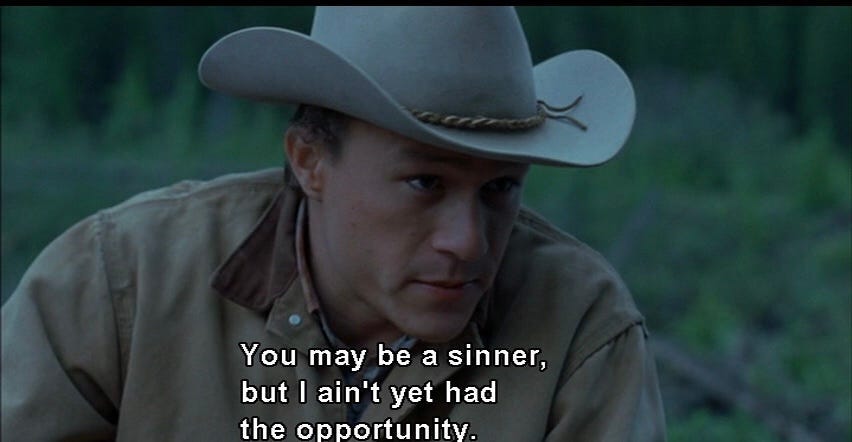

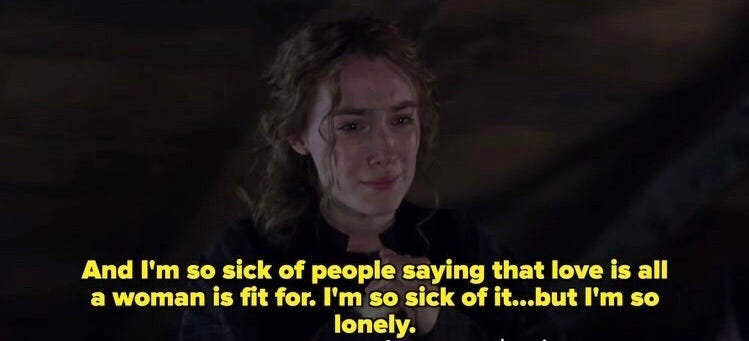

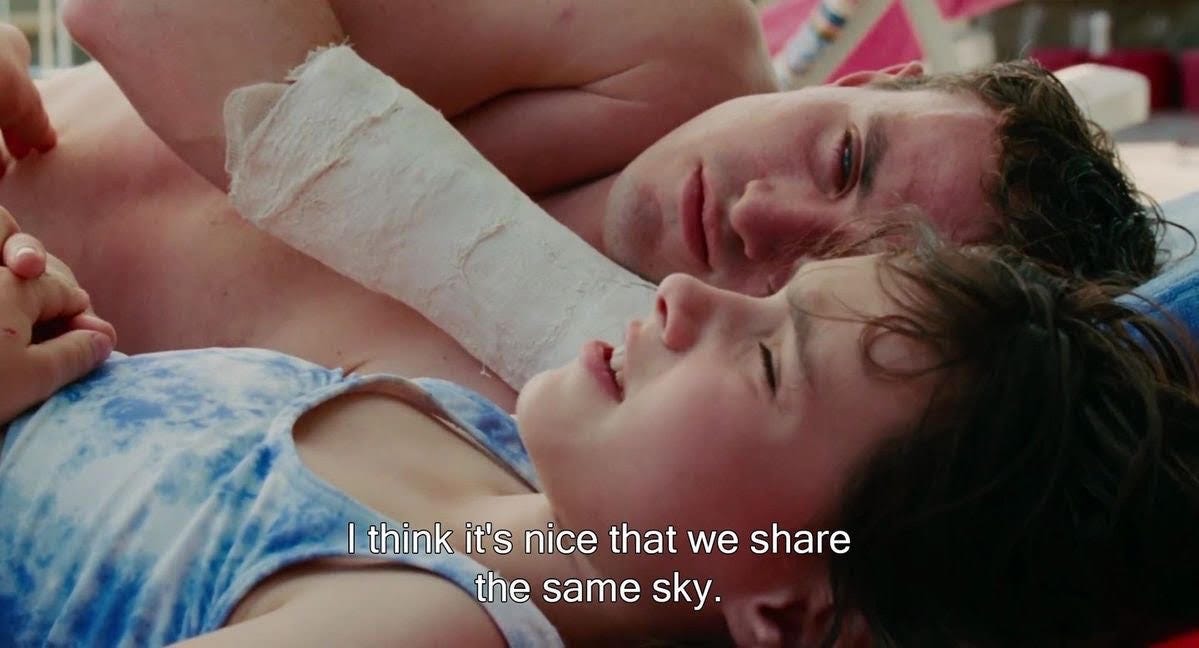
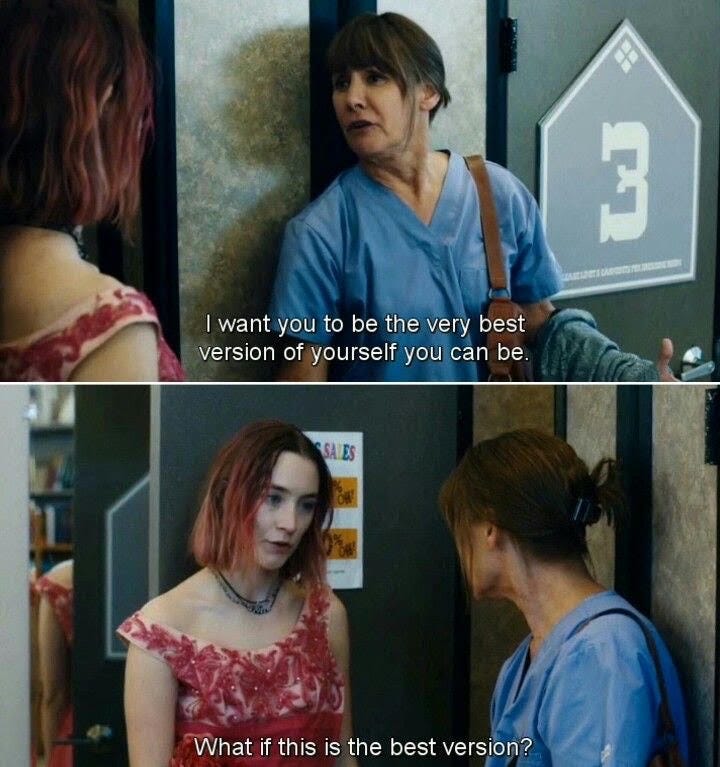
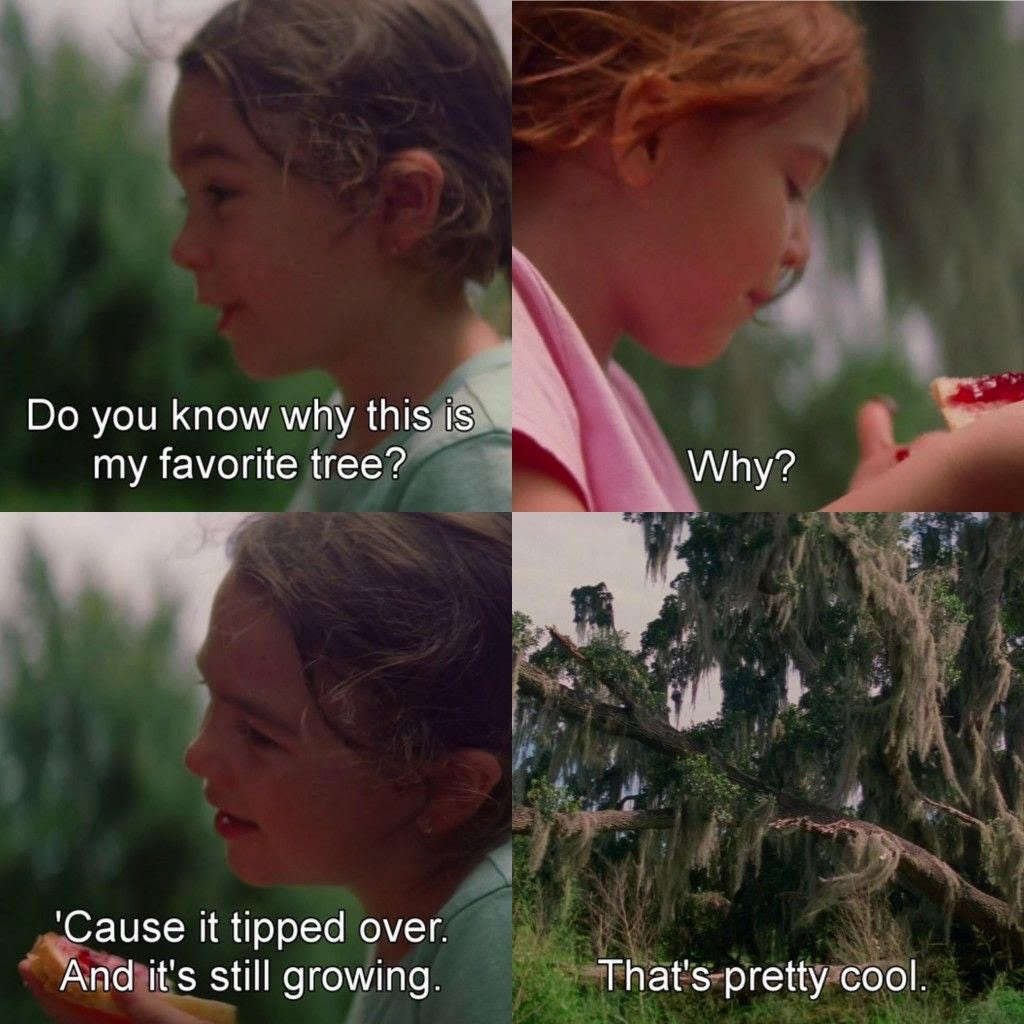

What a wonderful article, you can clearly tell a lot of heart went into this. I loved that you brought up Queer as Folk - though I prefer the UK original - because I feel like it's always underappreciated despite being a work with genuinely great and insightful dialogue. My favourite part of the article, however, is your analysis of that one crucial word Spike says to Buffy. There's a reason why these older shows with their imperfect and nuanced relationships stick with us.
What a wonderful article, you can clearly tell a lot of heart went into this. I loved that you brought up Queer as Folk - though I prefer the UK original - because I feel like it's always underappreciated despite being a work with genuinely great and insightful dialogue. My favourite part of the article, however, is your analysis of that one crucial word Spike says to Buffy. There's a reason why these older shows with their imperfect and nuanced relationships stick with us.